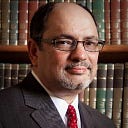History of French Fries: Are They Really French?

Today is National French Fry Day. While no one knows who began this celebration, placing it on July 13 is significant because the important French holiday is the next day, July 14, for Bastille Day.
Origin of French Fries
Some French people might call the delectable potato confection Belgian Fries, and there is evidence that, in fact, they may have originated there.
One story is that the phrase “French Fried Potatoes” first appeared in English in 1856 in the cookbook Cookery for Maids of All Work by E. Warren.
Another more likely story is that they were first called “French Fries” by American soldiers stationed in Belgium during World War I. After first tasting them, the Yanks called them “French” fries as it was the official language of their fellow Belgian soldiers.
A Belgian journalist claims that a 1781 family manuscript tells of deep-fried potatoes in the Spanish-Netherlands (now Belgium) before the 1680s. The fact that potatoes did not arrive in that area until around 1735 makes handling this a hot potato.
The French Angle on French Fries and Potatoes
The Spanish conquistadors brought the potato back to Europe from the Andes Mountains of Bolivia and Peru in…
